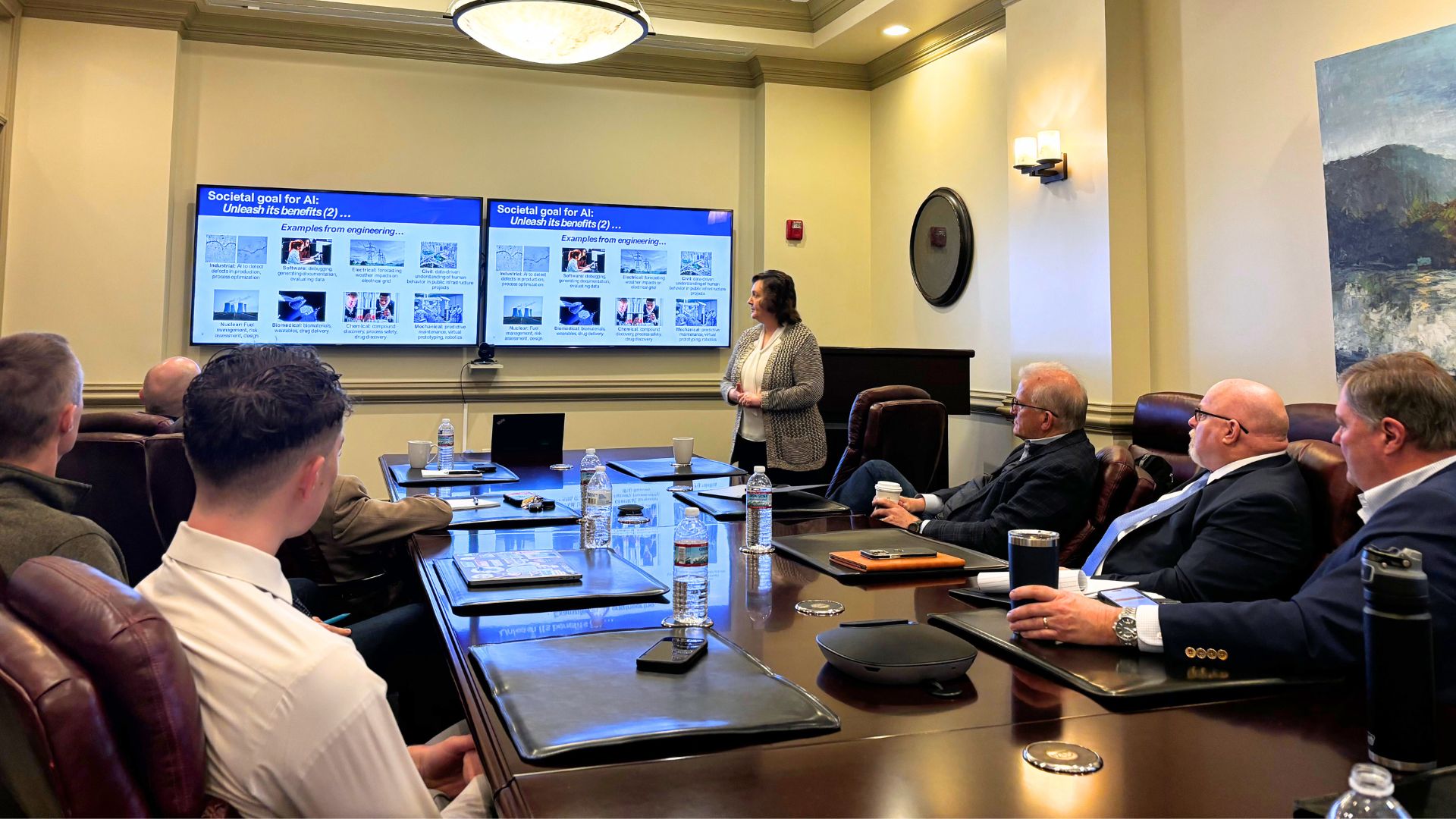
Lynne Parker plans to level up Tennessee’s approach to artificial intelligence
Lynne Parker is collaborating with the University of Tennessee, Knoxville to introduce a specialized academic program titled "Applied AI." This program aims to explore the intersection of artificial intelligence with various college majors.
Dr. Lynne Parker, the Associate Vice Chancellor and Director for the AI Tennessee Initiative at the University of Tennessee, Knoxville (UTK), has had an astounding career on the front lines of the rollout of artificial intelligence (AI) locally and nationwide.
She has held roles as the Director of the National Artificial Intelligence Initiative Office, Deputy United States Chief Technology Officer, and Assistant Director of Artificial Intelligence at the White House Office of Science and Technology Policy (OSTP). Now, we have her expertise in Knoxville, Tennessee to help our state mitigate the rollout of AI in various spaces.
She shared her long list of experiences and rollout strategies with the Thought Leaders in Action group at PYA headquarters on Monday morning.
According to Parker, nearly every major industry in the United States is about to be shaken by AI technologies: healthcare, education, agriculture, manufacturing, industrial, cyber security, infrastructure, you name it, and AI likely has a place somewhere along the pipeline of the industry.
With those changes comes a sense of fear from the public.
“People always ask me ‘Is AI going to replace my job?’ and my answer is ‘No, but someone who knows how to leverage AI tools in the workforce will,’” Parker said.
Grandview Research says the AI market in the U.S. will be worth $1.8 trillion by 2030, and more than 500,000 jobs in Tennessee alone will be either replaced or augmented by AI.
Parker saw this coming. She had been advocating for AI policy, executive orders, and national, state, and local budgets years before the general public knew what artificial intelligence even was. She played a big role in implementing the American Artificial Intelligence Initiative, which is the United States’ standing national strategy for maintaining American leadership in AI. Former President Donald Trump signed an Executive Order launching that initiative in 2019. Then, the National AI Initiative Office was launched in January 2021 to continue the management of AI in the U.S., to which Parker was named the first Director.
Throughout her years of service, Parker’s goal has always been the same, to advocate for policies that keep AI safe, ethical, and as a benefit to the American people. While she may no longer be operating AI Initiatives on the national level, she is continuing her efforts in Tennessee. Across the board of majors at UTK, Parker advocates for AI courses in every field of study.
She wants Tennessee to become a national and global leader in the data-intensive knowledge economy.
“Our best course of action is to look at the things Tennessee already excels in and find ways to implement innovative AI,” she said. “For example, manufacturing and transportation are two areas where we have a big national economic impact. Those are key areas where we as a state need to develop AI so we can stay at the forefront of production. Otherwise, we risk losing our competitive edge as a state.”
There are a few things in the pipeline at UTK that attack this initiative directly. First, the university (with the help of Parker) launched an AI 101 Course in the fall of 2023. It is an introductory offering that investigates Artificial Intelligence and its global impacts. The university also just launched “AI 401: Exploring the World of AI” at the beginning of this semester.
Parker has even bigger, broader plans. She is working with the UTK to launch a major dedicated to AI, as it relates to other fields of study. It would be called “Applied AI,” and Parker hopes the multidisciplinary degree program will launch in the Fall of 2024. It would allow a student to major in anything they want and add an “Applied AI” degree to it.
For example, Jane Doe could major in Marketing with Applied AI, to see how AI could streamline marketing processes. Or John Doe could major in Biomedical Engineering with Applied AI to see how different systems and innovations could change the landscape.
Parker envisions a future where UTK students graduate with an all-encompassing knowledge about how they can leverage AI skills in the workforce.
For more information on UTK’s initiatives with AI, check out their website.
Like what you've read?
Forward to a friend!

